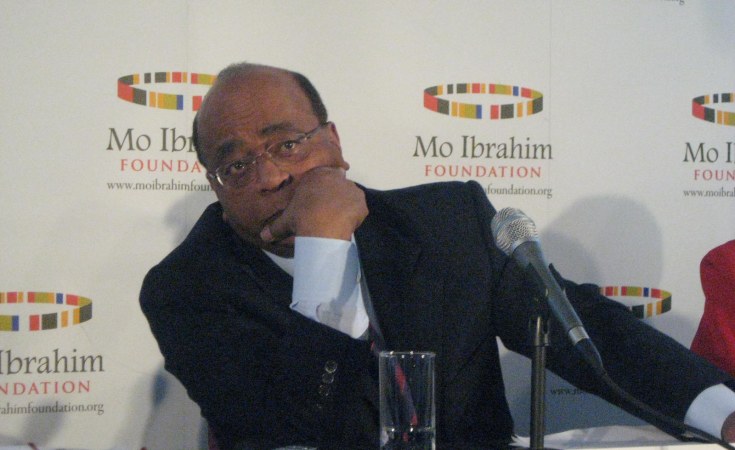Cape Town — The launch of the 2009 results of an ambitious survey which ranks the quality of governance across Africa has been marred by a split between the foundation which inaugurated the project and the American-based researchers who first compiled the survey.
As a consequence of the split, two rival reports are being published this year. One, due to be launched in Cape Town on Monday, October 5, has been produced by a range of African institutions and is sponsored by the Mo Ibrahim Foundation. The other, launched in Johannesburg on October 1, was compiled by a team - headed by Professor Robert Rotberg of the Kennedy School of Government at Harvard University - which was responsible for the first two surveys in 2007 and 2008.
The split became public in Johannesburg when Rotberg reportedly accused Mo Ibrahim, the Sudanese-born cellphone mogul who started the foundation of the same name, of wanting to "control" the index. In a reply issued to allAfrica.com on Saturday, the foundation responded by saying that from the inception of the survey, Rotberg had agreed that it must be moved to Africa "and produced by Africans as soon as practicable." However, Rotberg wanted to retain editorial control "even beyond this process of Africanisation," the foundation said.
Announcing the "Ibrahim Index" two years ago, Mo Ibrahim told AllAfrica that in appointing a team from the Kennedy School, the foundation had given the project "to what we saw as the foremost academic institution working in the area of governance."
Soon after the publication of last year's index, the foundation announced that, beginning this year, "the majority of the work behind the Ibrahim Index will transfer to selected African institutions over the coming years."
It described the move as part of a major initiative in which it was seeking "to give African institutions the opportunity to ensure that data about the governance of each African country is as robust and comprehensive as possible." It said it expected that the handover to African institutions would "both improve the quality of data in the Ibrahim Index and entrench the continent's ownership of the project."
No details of what prompted the foundation's decision were given, but there was a hint at difficulties between the foundation and Rotberg's team. The foundation said it "respects the academic integrity of the team at Harvard and has chosen not to interfere in the construction of the Ibrahim Index, beyond providing advice and perspectives," then added: "Comprehensive assessment of governance performance is, by definition, a work in progress that must evolve to take into account the economic and social transformations taking place on the African continent."
No public announcement of a split was made by the foundation, but Rotberg's index released in Johannesburg on Thursday said that since the end of 2008, "there has been no official connection between the Mo Ibrahim Foundation and this index." The index report said it was now supported by the World Peace Foundation, an organisation of which Rotberg is president and which is based in Cambridge, Massachusetts (as is Harvard).
Nearly a page of Rotberg's index is devoted to a description of what his team describes as its commitment to "African involvement — particularly of scholars and students — and to the transition of the project to African counterparts." It also lists an executive council dominated by African scholars and business leaders.
Rotberg was reported by the Pretoria News newspaper as saying at the Johannesburg launch that it was "ridiculous" to have two indices but that his was "the authentic index done in the way we conceived."
The Ibrahim Foundation said in its reply that Rotberg "as an individual wanted to retain editorial control" but that the foundation's board, "which includes distinguished scholars," insisted that the foundation should have editorial control.
"Unfortunately, Dr. Rotberg appears to have disparaged the foundation's motives for moving the Ibrahim Index as always intended and agreed," the statement added. "We regret that but will not respond beyond noting that we are proud of this year's Ibrahim Index and thank Dr. Rotberg for his past work on our behalf."
Soon after issuing the statement to AllAfrica, the foundation released a letter from the Kennedy School of Government's executive director for administration, Patricia Walsh, in which she told the foundation that the index "should not be perceived to be" a Harvard University or Kennedy School index.
"It is the work of an individual research investigator and does not necessarily reflect the views of any of the institutions noted above," she added. "I can also confirm to the best of my knowledge that the Kennedy School (in its capacity as the current institutional home for Professor Rotberg's research) and the Mo Ibrahim Foundation decided over the past year to move in different directions as it relates to the development of any future index, and this separation was amicably and mutually agreed to."
Material on the Ibrahim Index will be added to AllAfrica's resources page after its release on Monday October 5.


